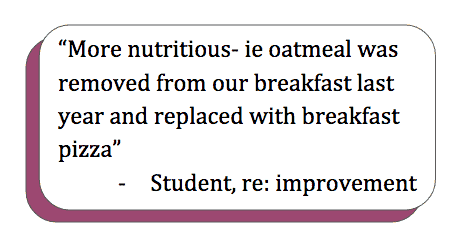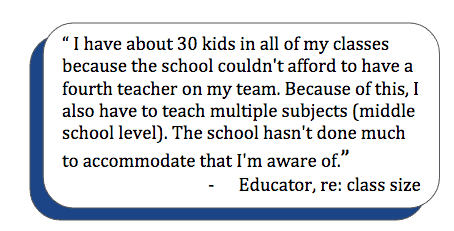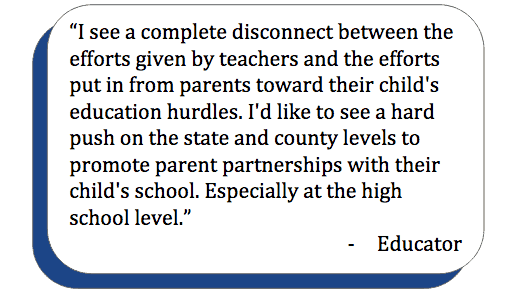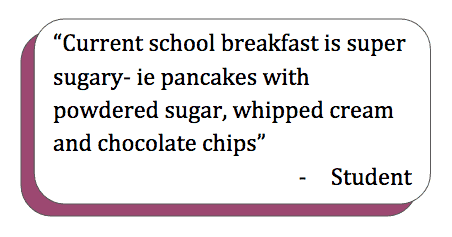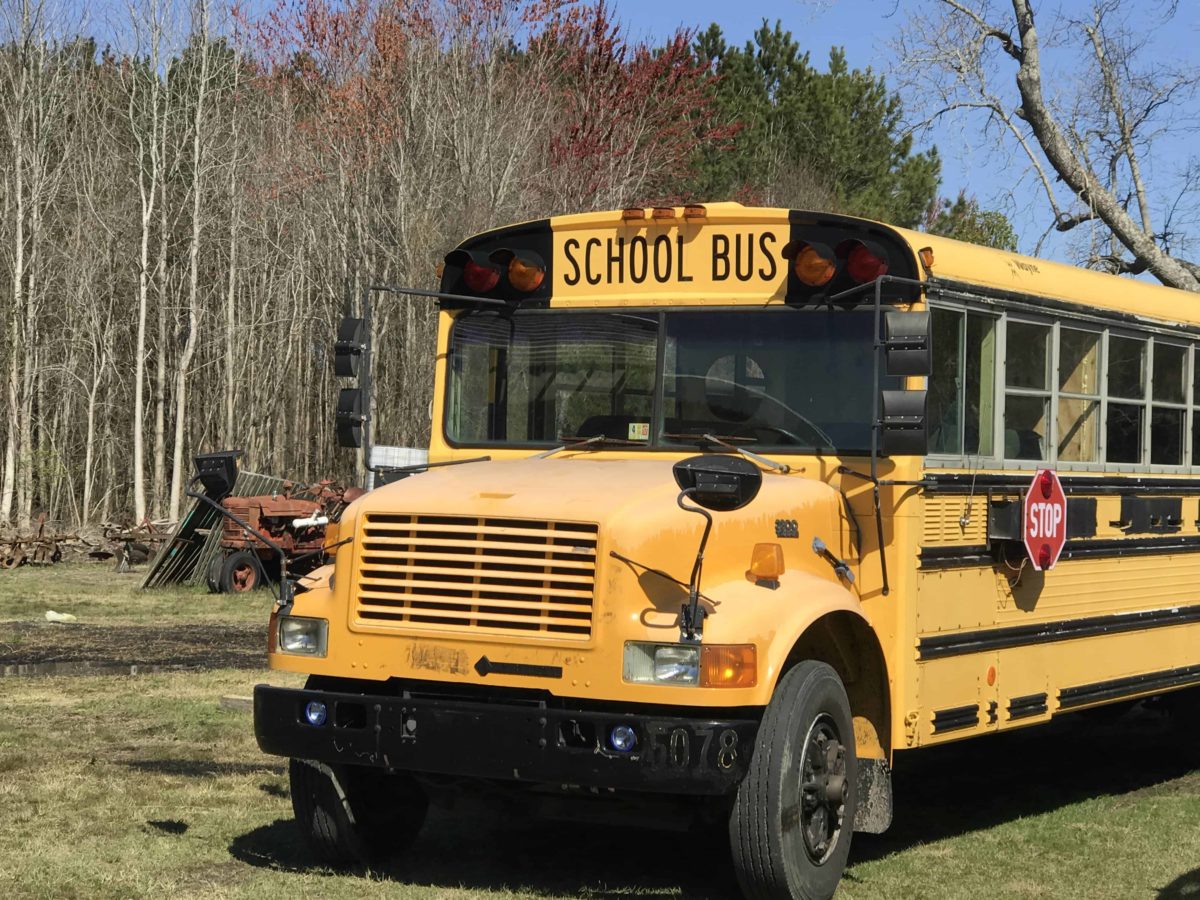
“What do you think is the most important problem facing this country today?”
Every month, Gallup asks Americans the open-ended question in their poll, and the issues identified as most important remain consistent. Jobs, education, healthcare, and safety tend to rank as the most important issues year after year, both in the U.S. and in North Carolina.
However, discovering what truly matters in the lives of everyday North Carolinians involves digging beyond the initial question. What keeps North Carolinians up at night? What are the root causes of the most pressing concerns?
Is it medical or college debt stacking up along with other unpaid bills?
Is it a fear that you or your family are excluded from making decisions in society? Do you feel marginalized, mocked, or left out? What opportunities do you wish that your family had?
What dreams do you have for your child?
What would you tell fellow North Carolinians if everyone could hear you? What would you tell policymakers?
Feel free to answer some questions to explore our interface.
The Reach NC Voices project, an initiative of EdNC, explores the ways in which a variety of issues impact the lives of North Carolinians. Using data collected from real-time conversations with thousands of respondents, we are developing a better understanding of North Carolinians perspectives. In addition to individual stories, Impact Thread, the data team, examines correlations and trends in the data to gain valuable insights about the lives of individuals across the state.
The results of our first three set of questions that we posed to you all demonstrate the ways the project offers a platform to elevate the stories of North Carolinians.
What matters to you?
The initial set of questions asked what North Carolinians perceived as pressing issues and what news sources they used. The findings below are based on data retrieved from 219 participants using a set of questions co-developed by EdNC and Impact Thread.
Our questions reflected a similar set of questions to those polled by Elon as they survey North Carolinian priorities annually.
Overall, education ranked as the most important issue with 56 percent of respondents ranking it highest. An analysis of each individual’s top five issues revealed differing levels of importance by gender and age.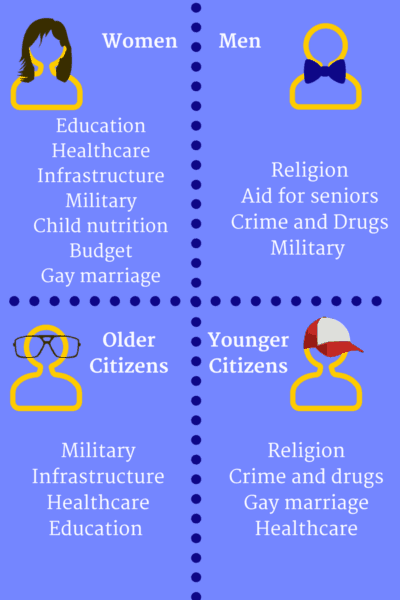
- North Carolinians who find women’s health important also find jobs important.
- Those who find religion important also find child nutrition and immigration important.
- Those who find nutrition important also find gay marriage, immigration and budget/debt to be important.
- Those who listed budget and debt as important issues to them also find nutrition to be important.
Our questions also sought to understand how respondents perceive the state of the news media and trust in the media.
Three out of four respondents stated that they find their preferred news sources to be very or somewhat trustworthy. When asked if they found news sources to be informative, 84 percent of those who joined in the conversation said they did.
Participants said local news outlets outrank other media in terms of trustworthiness and importance. Participants also said Instagram, Snapchat, and Twitter are less trustworthy and less informative.
In the overlap between news sources and issues that matter most to North Carolinians, there is a variety of interesting data. Some respondents rely solely on news outlets, while others rely purely on social media sites. Many use a combination of the two to obtain their news.
Traditional news outlets only:
- North Carolinians who find immigration to be an important issue are more likely to find their news from national news sources.
- Those who find education or health care to be an important issue use local and national news outlets.
- Those who find crime and drugs important are more likely to find their news from local sources.
- Those who view election reform as an important issue are more likely to use Snapchat to find their news.
Social media outlets only:
- Those who find jobs and the economy as important are more likely to get their news from Snapchat and Twitter.
- Those who find crime and drugs important are more likely to find their news from local sources.
Combination of sources:
- Those who view infrastructure as an important issue use local and national outlets as well as Facebook to find news.
- Those who find military and national security as an important issue use local and national outlets and Twitter to find their news.
- Those who view child nutrition as an important issue use local and national outlets and Facebook to find news.
- Those who find budget and debt important are more likely to find their news from Facebook, local and national outlets, and Twitter.
An analysis of the data shows North Carolinians get their news from a variety of sources, often not relying on one source for every piece of information. As more pathways to getting news emerge, especially in the age of social media, outlets must strive to ensure the news they circulate is accurate. These digital platforms have intentionally become reliable avenues for public discourse, but they are also alternatives to traditional news sources and at times, the sources of misleading or inaccurate information.
One long-term aim of the campaign is to represent the collective voice of North Carolina through an on-going conversation. By building messaging channels that reach into homes across the state, we believe that we will able to offer you information that you trust, wherever you are.
Exploring Math
Reach NC Voices is not just a standalone project for EdNC and our partners. It is a platform that will be integrated into all aspects of storytelling and news reporting. Using an array of technology, including CityZen’s polling platform, Groundsource’s texting platform, our new Facebook messenger bot, and a new database soon to be released, the project creates a unique platform for news gathering and citizen engagement across the state. One recent set of questions exemplifies the powerful ways the project yields insight on education issues.
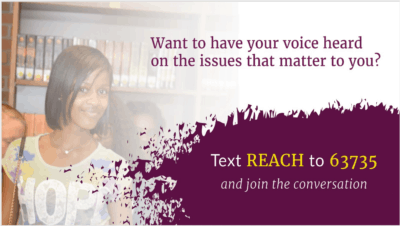
Just a few weeks ago, EdNC launched a series by math educator Trey Ferguson that examined the state of math education in North Carolina and possibilities for the future.
Posing a series of questions to readers, particularly parents, illustrates why certain perceptions exist around the academic standards in math and English that prescribe what a student should know at the end of each grade.
The results found parents’ favorite subjects in school were not the ones they chose when asked where they hoped their child would succeed. Most parental favorites when they were in school were history and English, while their least favorite subject was math. Yet, most parents want their child to succeed in math. This is a noteworthy point because while a parent may not have liked math, he or she recognizes the importance of a child’s achievement in math for his or her future success.
The results also provided some guidance on the labels and terminology used in our reporting. For example, less than 8 percent of respondents are familiar with the term “integrated math.” (Note that 83 percent of respondents skipped the question about integrated math.) A better understanding of a reader’s vocabulary enables reporters to provide more thorough and comprehensive explanation of the issues confronting us.
In his series, Trey Ferguson worked to explain “integrated math”:
Building from students’ prior knowledge, connecting topics that used to seem unrelated, and applying these skills to solve new problems.
This is not only an eye-opening way of exploring the world of mathematics, but a foundational skill of learning, not just utilized in a math class.
There has been much debate over the math standards in our state, and around the country. The process has been grueling. However, it is important to differentiate the standards from the curriculum. The standards are our destination, while integrated math is the vehicle we choose to get there.
What does it mean for the grueling, occasionally contentious, debate around math standards when terms like “integrated math” are seemingly unfamiliar to some?
Answering questions about terminology will strengthen journalistic coverage of math. By introducing two-way conversation and feedback loops into articles and series, readers will gain greater understanding of complex topics and context.
Note: The results were based on data collected from 92 participants from a survey co-developed by EdNC and Impact Thread. The purpose of the survey was to identify relevant patterns in participant perception regarding math and other K-12 school subjects.
A search for stories
Data is only as good as the stories behind it. Using technology such as CityZen and Groundsource to gather and cull large amounts of data over time is vital. But of equal importance is understanding the narratives behind the numbers. Open-ended survey questions yield responses that may be useful springboards for conversation with EdNC journalists.
We recently engaged in a conversation about both school nutrition and class size which allowed respondents to weigh-in with personal narratives about their own experiences. The nearly 100 participants offered more nuanced views than data alone could provide.
Below are some examples of answers that we have received. As we integrate the answers into our reporting, our reporters will vet the stories, follow up with those who speak up, and even invite you to create your own content for our platform.
Why?
Why does this matter?
What will it mean for our state?
EducationNC believes deeply in the power of citizen voices to shape the future of the state. Across North Carolina, the lived realities of residents are not always reflected in public dialogue. Our work seeks to change that, but to do so, we need your voice.
If you are a parent, you know your children better than anyone. You know what it is like to worry about their health, their safety, their hopes, and their fears.
If you are a teacher, you recognize and understand the complex needs of your students. One teacher in Tarboro voiced the concern many educators across the state share: she worries about what happens to her students when they are not in her classroom. She knows which student will come to school hungry because her family does not have enough food and which student will doze off because of a sleepless night.
And if you are a student, then you know your hopes and dreams. You understand the challenges you face in and out of the classroom.
We want to hear from all of you because we care about what you have to say. Our state will be stronger when it understands your realities.
Tell us your stories. Share your perspective. Join us.


